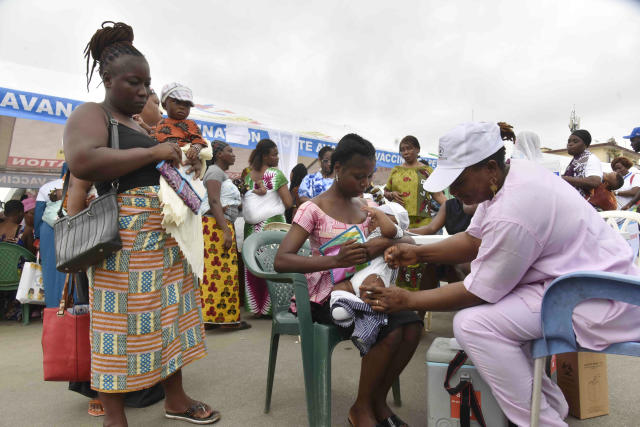The world’s second vaccine against malaria was launched on Monday as Ivory Coast began a routine vaccine program using shots developed by the University of Oxford and the Serum Institute of India.
The country became the first to start rolling out the newest shot targeting malaria in an effort that aims to cover about 250,000 children under two.
“This decision shows the engagement of the government, who make it a point of honor to invest in the health of our children, our most precious treasures,” said Health Minister, Pierre Demba, at a ceremony to mark the launching of the vaccination campaign.
“We want to assure their protection and their well-being, because they are the future of our country,” he added.
The three-dose vaccine known as R21/Matrix-M was developed by Britain’s Oxford University and was authorised by the World Health Organisation (WHO) last October.
The rollout of a second vaccine is the latest milestone in the global fight against malaria and should help address a problem that emerged well before either of the two shots was launched: demand for them is likely to far outstrip supply for several years.
Experts say having safe and effective malaria vaccines is important to meet demand. The shot is meant to work alongside existing tools — such as bed nets — to combat malaria, which in Africa kills nearly half a million children under the age of five each year.
The Serum Institute of India, which manufactures the vaccine, has produced 25 million doses for the initial rollout of the shot and “is committed to scaling up to 100 million doses annually,” the company said on Monday about the launch in Ivory Coast.
Serum said it is offering the vaccine for less than $4 per dose, in keeping with its aim to deliver low-cost vaccines at scale.
Results from a large trial in February showed the vaccine prevented around three-quarters of symptomatic malaria cases in young children the first year after they got the shots.
Malaria most often attacks children under five and pregnant women, and more than 94% of the world’s roughly 249 million malaria cases and 608,000 deaths every year are in Africa.
Dr. Fatim Tall, acting WHO Representative in Ivory Coast, said at the ceremony that the vaccine would “guarantee without any doubt that our children will survive not just past their first birthday, but will from now on reach adulthood, in good health.”
But malaria vaccines don’t stop the disease’s transmission, and experts have long warned that preventive measures like insecticide spraying and the use of bed nets will remain critical.
– Africa News/VOA

